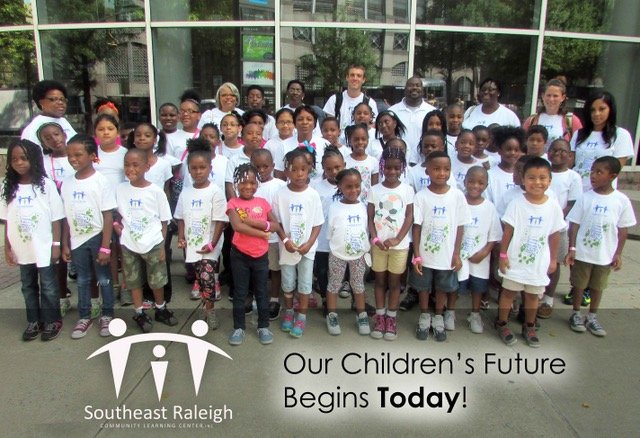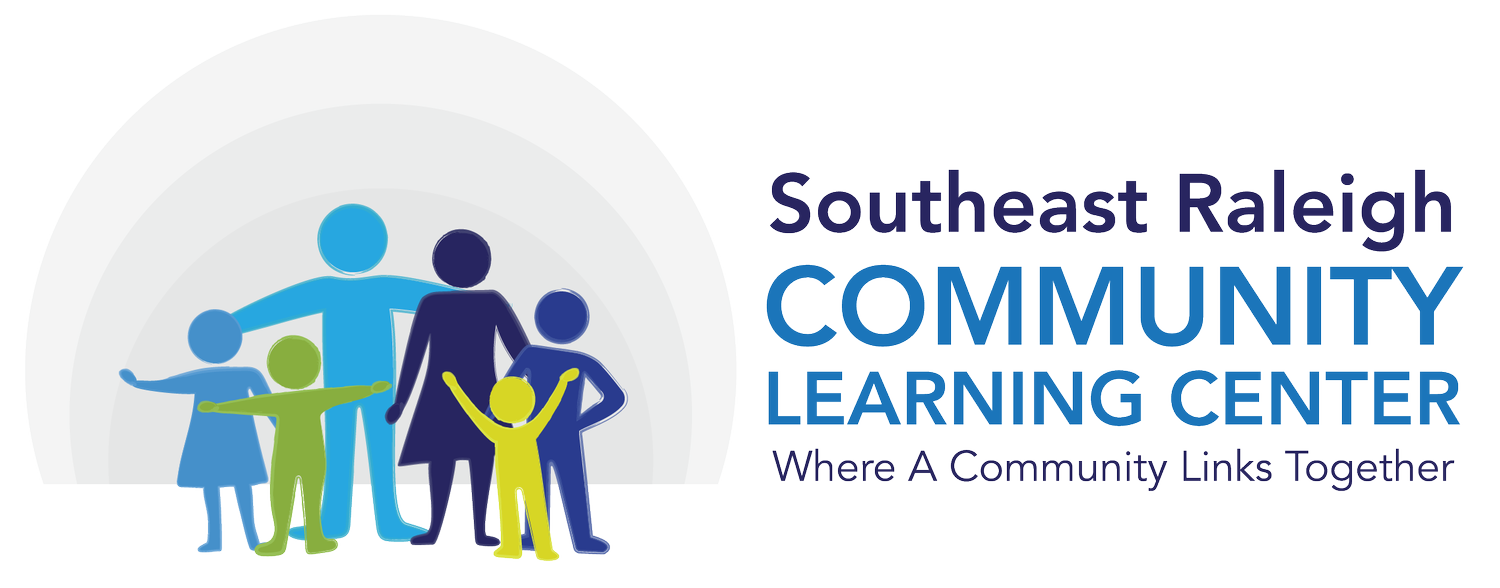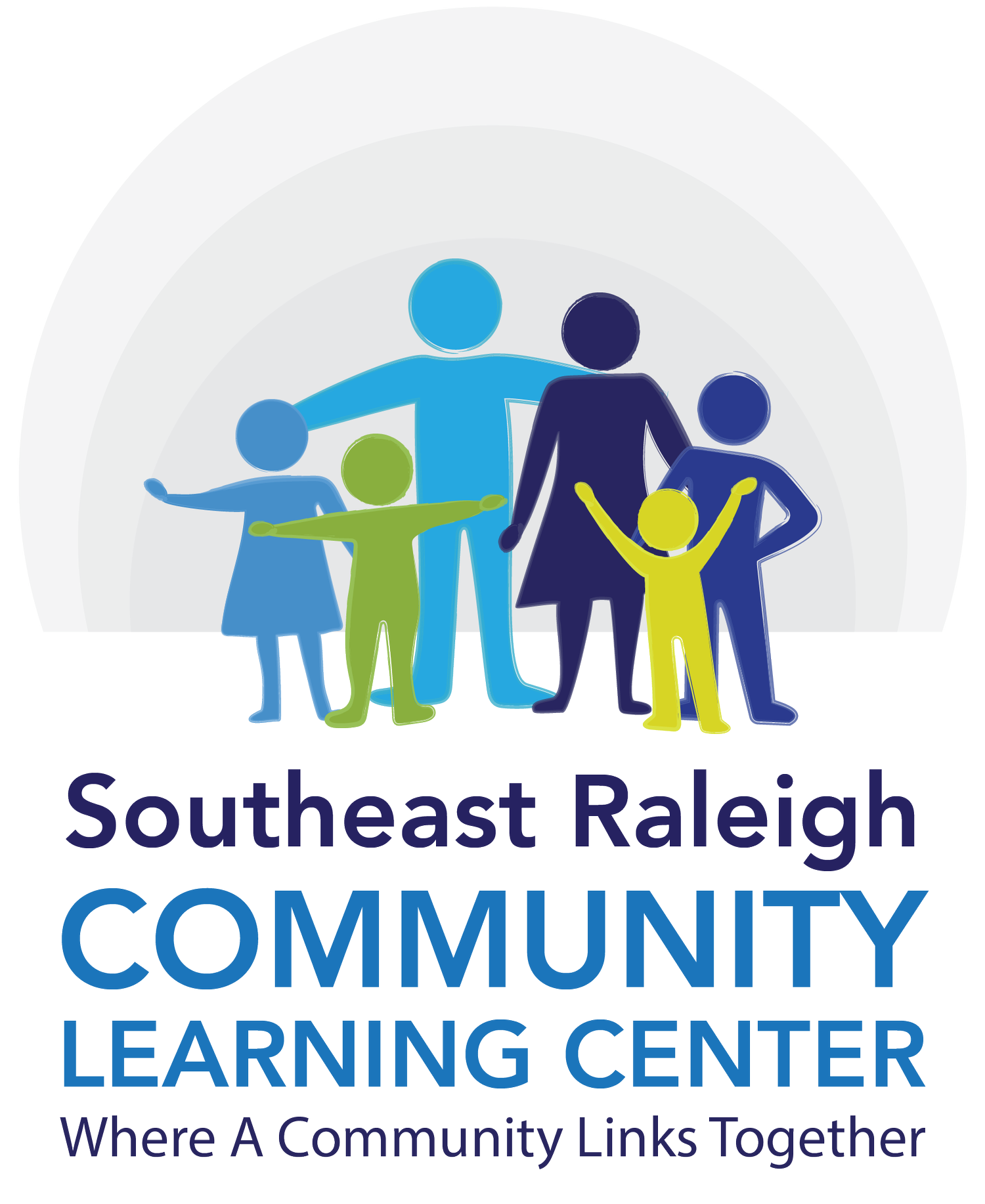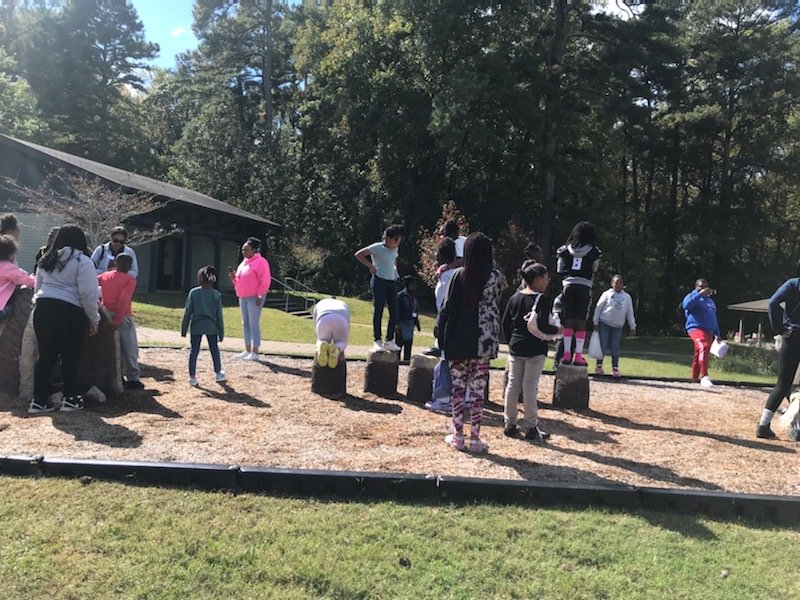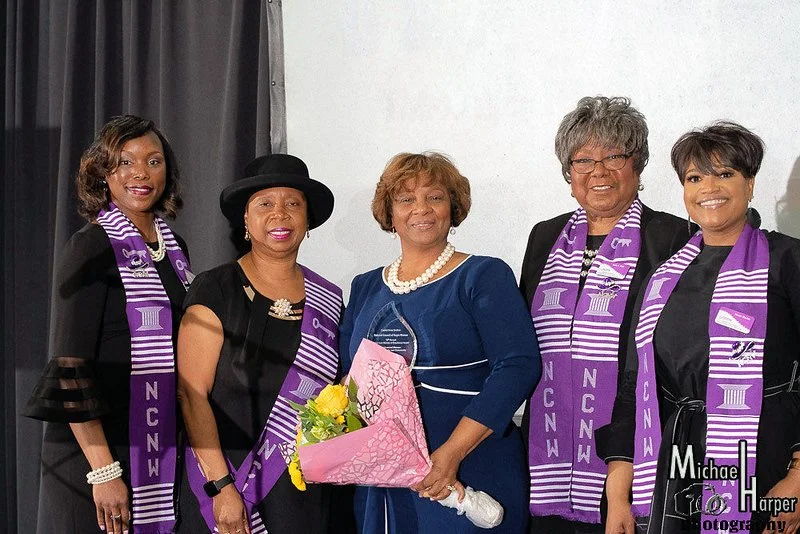History Since 2014 Southeast Raleigh Community Learning Center (SERCLC) has provided a stalwart afterschool program for students grades K-high school. This program equipped and supported students with academic skills and knowledge in literacy and STEM (Science, Technology, Engineering and Math), as well as social and personal leadership.
2025-2026 This academic school year offers SERCLC the great opportunity to work hand in hand with a local area high school, Southeast Raleigh High School in the After The Bell Program. This program focuses on working collaboratively with licensed teachers at SE Raleigh HS as they endeavor in strengthening students in completing recovery for graduation, in demonstrating understanding of homework assignments, and in developing greater leadership strategies. More below in the After The Bell brochure.
Mission Statement Southeast Raleigh Community Learning Center (SERCLC) supports the learning environment for youth and their families in the Southeast Raleigh community by building healthy and positive partnerships with families, public, private and faith-based organizations.
Guiding Statement Setting a standard that leads to student success.
What is After The Bell Program?
How Do I Enroll My Student? You may: - Contact the SE Raleigh High school office and inquire about After the Bell program -Contact Ms. Monica Horna or Ms. Lia Decker to inquire about After The Bell Program, 919-856-2800 -Contact the SERCLC office at 919-710-1598
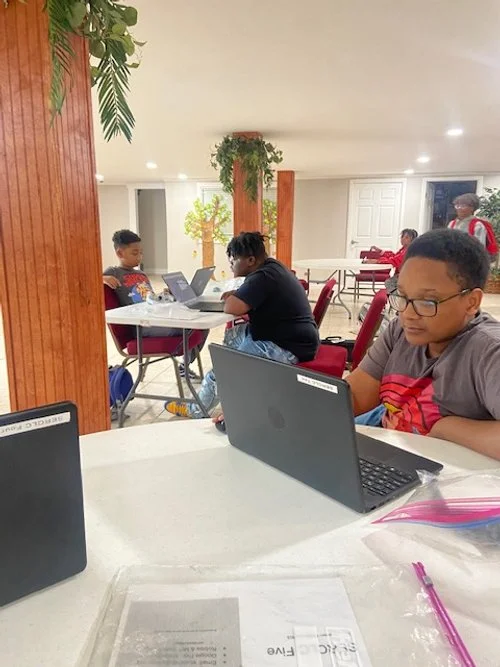
2025 Night of Stars Fundraiser
Each year SERCLC presents the annual Night of Stars event. This year SERCLC celebrated current and former staff members, educators and families who have impacted SERCLC become over the years. The goal for this years’ fundraiser is to raise community awareness of:
- the importance to increasing student skills, knowledge and performance
-how to help students graduate academically and socially ready for work, military, college (community college) and life
BECOME A CONTRIBUTOR
Show your support to the students in our community and school district. Your contribution is greatly appreciated and needed. If you would like to be a monthly or an annual contributor, CASHapp your tax deductible contribution to:
$SERCLCTASK
We are proud to have been awarded grants in 2023-24 from the following:
Congratulations to Ms. Wanda McCargo for being honored as the 2023 Woman of the Year for Grass Roots and Community Development by the Triangle Chapter of the National League of Negro Women.
Celebrating the Black Experience
In the early 1960s, the city of Birmingham was a critical city to the Civil Rights Movement. Throughout the movement for racial equality, Birmingham was the site of protests, speeches, marches, and sit-ins. White supremacists, including members of the Ku Klux Klan placed so many bombs and called in so many bomb threats that the city earned the unfortunate nickname of ''Bombingham.''
The 16th Street Baptist Church was known as a meeting spot for events in the early Civil Rights Movement. Although people would gather there to discuss ways to get racial equality, on September 15, 1963, people were at the church to attend a regular Sunday service. Church attendees had no idea that the day would be like another.
Four men, who were members of the Ku Klux Klan, had planted a bomb made of dynamite in the church. When the bomb went off, the bricks of the church flew everywhere and the building was filled with smoke. Four young girls died, Denise McNair, Carole Robertson, Addie Mae Collins and Cynthia Wesley who were getting ready for church in the basement and were buried in rubble. Fourteen others were injured in the explosion.
To learn more: https://www.nps.gov/articles/16thstreetbaptist.htm
Shirley Chisholm
1924-2005
Shirley Anita St. Hill Chisholm was the first African American woman in Congress (1968) and the first woman and African American to seek the nomination for president of the United States from one of the two major political parties (1972). Her motto and title of her autobiography—Unbought and Unbossed—illustrates her outspoken advocacy for women and minorities during her seven terms in the U.S. House of Representatives. Born in Brooklyn, New York, on November 30, 1924, Chisholm was the oldest of four daughters to immigrant parents Charles St. Hill, a factory worker from Guyana, and Ruby Seale St. Hill, a seamstress from Barbados. She graduated from Brooklyn Girls’ High in 1942 and from Brooklyn College cum laude in 1946, where she won prizes on the debate team. Although professors encouraged her to consider a political career, she replied that she faced a “double handicap” as both Black and female. In 1964, Chisholm ran for and became the second African American in the New York State Legislature. After court-ordered redistricting created a new, heavily Democratic, district in her neighborhood, in 1968 Chisholm sought—and won—a seat in Congress. There, “Fighting Shirley” introduced more than 50 pieces of legislation and championed racial and gender equality, the plight of the poor, and ending the Vietnam War. She was a co-founder of the National Women's Political Caucus in 1971, and in 1977 became the first Black woman and second woman ever to serve on the powerful House Rules Committee. That year she married Arthur Hardwick Jr., a New York State legislator. Chisholm retired from Congress in 1983. Read more about this trailblazer at https://www.history.com/topics/us-government-and-politics/shirley-chisholm
Mayor of Raleigh, Clarence Lightner, 1973-1975
Clarence Everett Lightner, the first popularly elected mayor of Raleigh, North Carolina and the first African American elected mayor of a metropolitan Southern city, was born on August 15, 1921 to Mammie Blackmon and Calvin E. Lightner in Raleigh. His father, Calvin, founded the Lightner Funeral Home.
Lightner graduated from North Carolina Central College (now North Carolina Central University) in Durham, North Carolina, and then studied at Echols College of Mortuary Science in Pennsylvania so that he could to continue working at his father’s business. While at North Carolina Central Lightner was a star athlete and was eventually inducted into the NCCU Hall of Fame. Lightner was also a member of the Omega Psi Phi and Sigma Pi Phi fraternities, and he served in the US Army for three years during World War II.
After the passing of the Voting Rights Act of 1965, Lightner was one of the first African Americans elected to political office. He promoted his business and community leadership as qualifications for a seat on the Raleigh City Council, which he won in 1967. Lightner served on the City Council from 1967 to 1973. In 1973 Lightner was elected mayor, defeating white businessman G. Wesley Williams. Lightner was elected in the same year but just months before Maynard Jackson won the mayor’s office in Atlanta, Georgia. Jackson’s achievement in a larger city overshadowed the historic significance of Lightner’s election. Lightner became a charter member of the Southern Conference of Black Mayors, a parent organization of the National Conference of Black Mayors.








